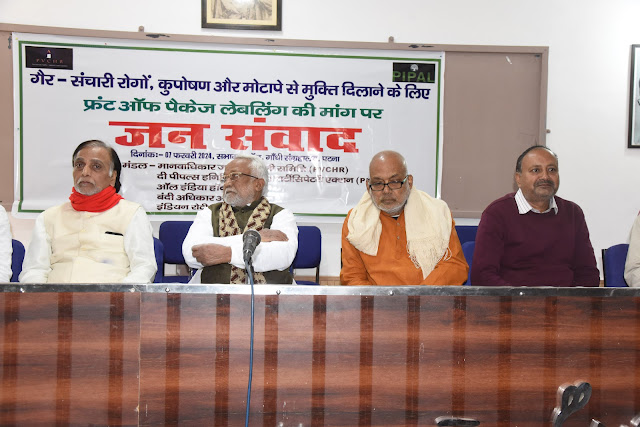Junk Food and Non-Communicable Diseases: A Growing Concern in India
The Grim Statistics
The statistics related to NCDs in India paint a grim picture:
NCD Mortality: Nearly 58 lakh people in India die from NCDs each year, out of approximately 90 lakh overall deaths. This indicates that a significant portion of the population is succumbing to diseases that are largely preventable through lifestyle changes.
Childhood Nutrition and Obesity: According to the National Family Health Survey (NFHS-5-2021), under-nutrition in children remains stagnant, with one in three children affected. Simultaneously, obesity is on the rise among children under five years old. The percentage of obese women increased to 24% from 20.6% in 2015-16, while for men, it rose to 22.9% from 18.4% in the same period.
Diabetes and Hypertension: The International Council of Medical Research – India Diabetes (ICMR-INDIAB) study reveals that as of June 2023, India had approximately 10.1 crore people with diabetes, 13.6 crore with prediabetes, 31.5 crore with hypertension, and 25.4 crore with generalized obesity.
Metabolic Obesity in Children: The Comprehensive National Nutrition Survey (CNNS) 2016 reported that over half of the children surveyed exhibited signs of metabolic obesity, regardless of their weight or height. This indicates that even children who may not appear overweight are at risk of developing obesity-related complications.
Ultra-Processed Foods (UPFs): Consumption of UPFs in India has significantly risen. A 2020 study by the Food Safety and Standards Authority of India (FSSAI) showed that many categories of these foods failed to meet thresholds for energy, total sugar, added sugar, total fat, saturated fat, and sodium. This has serious implications for public health, as UPFs are often linked to the development of NCDs.
The Need for Front-of-Package Warning Labels (FOPL)
Given these alarming statistics, it is crucial to expedite the implementation of Front-of-Package Warning Labels (FOPL) on packaged foods. These labels will serve as a powerful tool for consumers, allowing them to easily identify and understand the nutritional content and harmful ingredients present in packaged foods and beverages. By providing clear information, FOPL can empower consumers to make healthier choices and reduce their risk of NCDs.
Call to Action
We urge the National Human Rights Commission to continue its proactive role in this matter by engaging with relevant authorities to ensure swift action on this critical public health issue. The steadfast dedication to the well-being of our citizens, especially children, youth, and women, is commendable and greatly appreciated.
Conclusion
Addressing the rising prevalence of NCDs requires concerted efforts from all stakeholders. By implementing FOPL and promoting healthier dietary choices, we can significantly mitigate the impact of NCDs and enhance the health and well-being of our population. It is time for India to take decisive action to curb the consumption of junk food and UPFs, and to protect the health of its citizens, particularly the younger generation.




Comments
Post a Comment